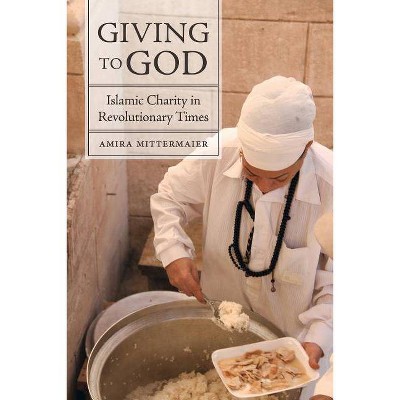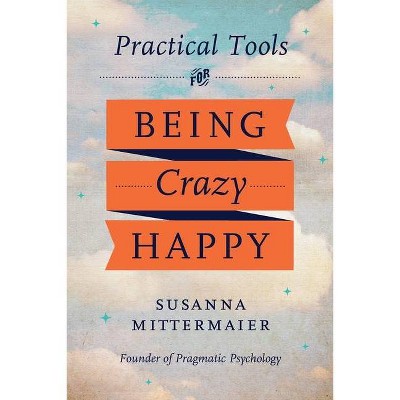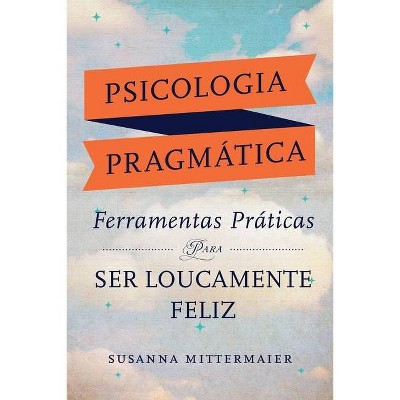Giving to God - by Amira Mittermaier (Paperback)

Similar Products
Products of same category from the store
AllProduct info
<p/><br></br><p><b> About the Book </b></p></br></br>"During the 2011 uprising, hundreds of thousands of Egyptians took to the streets to call for social justice. Three years later, President el-Sisi promoted economic growth, mega projects, hard work, and citizens' sacrifices. What many of the activists and el-Sisi have in common, despite their radically different visions, is an objection to charity and handouts--to 'giving a man a fish.' Set against this drastically shifting historical backdrop, this book describes an alternative vision of justice: an Islamic ethics of giving that is enacted in Cairo's alleys, mosque courtyards, saint shrines, and slums. It tells the story of a range of pious Muslims--housewives, Sufi devotees, and Salafi volunteers--who, day after day, hand out meals to the poor, and it tells the story of people at the receiving end--beggars, single-parent families, and dervishes. This form of giving is not grounded in compassion, the desire to end poverty, or the hope for a better world, but rather it is understood as a duty and a way to interact with God. By initiating an unlikely conversation between such lived understandings of Islam and the revolutionary moment, this book invites a reimagining of justice and ethics beyond 'the human.' It ethnographically disrupts the entrenched claim that handouts are outdated, shortsighted, and damaging--that they inherently and necessarily stand in the way of social justice"--Provided by publisher.<p/><br></br><p><b> Book Synopsis </b></p></br></br><i>Giving to God</i> examines the everyday practices of Islamic giving in post-revolutionary Egypt. From foods prepared in Sufi soup kitchens, to meals distributed by pious volunteers in slums, to almsgiving, these acts are ultimately about giving to God by giving to the poor. Surprisingly, many who practice such giving say that they do not care about the poor, instead framing their actions within a unique non-compassionate ethics of giving. At first, this form of giving may appear deeply selfish, but further consideration reveals that it avoids many of the problems associated with the idea of "charity." Using the Egyptian uprising in 2011 and its call for social justice as a backdrop, this beautifully crafted ethnography suggests that "giving a man a fish" might ultimately be more revolutionary than "teaching a man to fish."<p/><br></br><p><b> From the Back Cover </b></p></br></br>"With a light touch, Amira Mittermaier brings her astute ethnographic sensibilities to bear on pious charity, revealing the surprising, even radical, possibilities it affords. This book is a true pleasure to read and a highly original provocation to thought."--Webb Keane, author of <i>Ethical Life: Its Natural and Social Histories</i> and <i>Christian Moderns: Freedom and Fetish in the Mission Encounter </i> <p/> "Amira Mittermaier has written a brilliant ethnography. A rich and complex account of Islamic ideas and practices of charity in Cairo during and after the 2011 uprising, <i>Giving to God</i> invites the reader to contemplate the different ways that people inhabit the Islamic tradition. But this book is not only a highly sophisticated description of the way people belonging to different classes live in their religious world; it is also a challenge to serious thought about the possibilities and limits of the ethics and politics of poverty in the contemporary Middle East--and beyond."--Talal Asad, author of <i>Secular Translations: Nation-State, Modern Self, and Calculative Reason</i> <p/> "The revolutionary moment in Egypt seems to have redirected, as it has so much else, Amira Mittermaier's vivid ethnographic meditations on the everyday practices, sites, and intentions of pious charity. Drawing from friendships across Cairo with ordinary/extraordinary individuals dedicated to giving to the poor, she challenges the familiar paradigms of humanitarian care, revolutionary justice, and neoliberal self-help, offering up a remarkable alternative animated by such unforgettable concepts as 'a divine minimum wage.'"--Lila Abu-Lughod, Joseph L. Buttenwieser Professor at Columbia University and author of <i>Veiled Sentiments</i><p/><br></br><p><b> Review Quotes </b></p></br></br><br>"Mittermaier has created an important study of Muslims negotiating their religious lives in the modern world."-- "Journal of the American Academy of Religion"<br><br>"A masterpiece of the anthropology of charity and the ethos of Islamic economics."-- "Islam and Christian-Muslim Relations"<br><br>"Provides a discourse of charity that challenges and disrupts dominant secular and liberal notions of humanitarian aid. The book is recommended not only to anthropology and sociology students and scholars but also to ones of economics, theology, and religious studies."-- "KULT Online"<br><br>"Amira Mittermaier has written a marvelous book. <i>Giving to God</i> will be of considerable value not only to anthropologists of Islam and charitable giving, but also to historians and political scientists who seek to understand the persistence of a longstanding model of Islamic charity in the face of political, economic, and social upheaval."-- "Reading Religion"<br><p/><br></br><p><b> About the Author </b></p></br></br><b>Amira Mittermaier </b>is Associate Professor of Religion and Anthropology at the University of Toronto. She is the author of <i>Dreams That Matter: Egyptian Landscapes of the Imagination.</i> <p/>
Price History
Price Archive shows prices from various stores, lets you see history and find the cheapest. There is no actual sale on the website. For all support, inquiry and suggestion messages communication@pricearchive.us




















